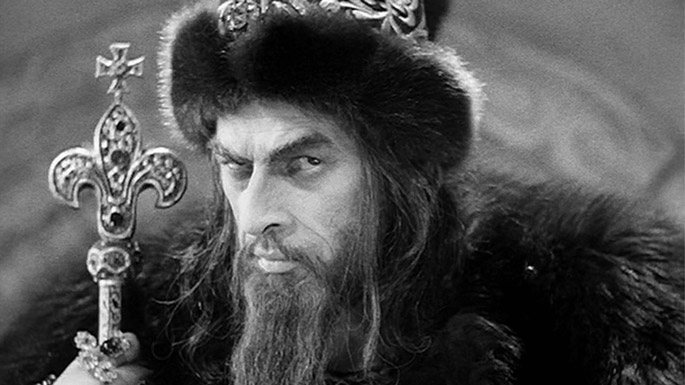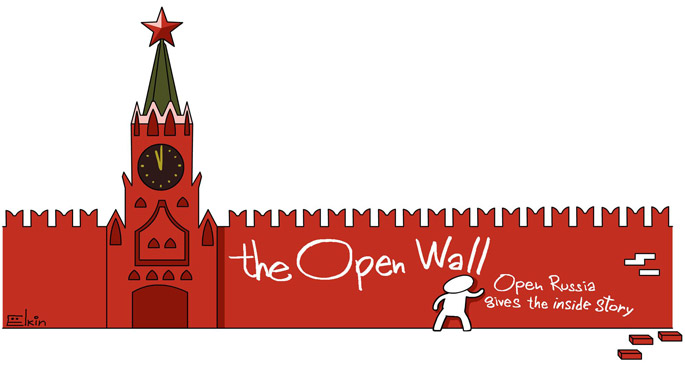Surrounded by Enemies
Surrounded by Enemies
How is it that a president with such a high approval rating, is so afraid of the people closest to him?

A great deal of brouhaha has been generated in Russia by a recent Kommersant article talking about the awards recently handed out by the Russian president, in the Kremlin, to soldiers and officers involved in Russia’s Syrian operation. The list of awardees caused a furore in its own right, including as it did not only aviation personnel, but also the Major-General of the 1st Tank Army. In other words, the Russian operation wasn’t, as we were told, limited to a (well-publicised) aerial assault, but also involved a (furtive) ground element.
This exposé largely overshadowed another telling observation in the same article, one that testifies to the fact that Vladimir Putin’s obsession with personal safety reminds one of other Kremlin inhabitants who saw enemies around every corner – Ivan the Terrible, Paul I, Stalin … Ever eager to frighten the rest of the world, he is himself apparently in the grip of the most intense fear. “It is strange,” writes Andrei Kolesnikov, “that no one here [in the Kremlin] was wearing the medals and orders awarded to every participant of the Syrian campaign […]. They could have all worn these medals with pride, especially here in St George’s Hall, in the presence of the president, but one of the attendees explained why they were not permitted to do so: ‘We were told that no sharp items should be taken into the hall.’”
This is by no means the first hint of the paranoia besetting the president – a paranoia which, it would seem, manifests itself in all sorts of ways: we need only think back to an incident from two years ago, when, just prior to the start of the big presidential press conference, Federal Protective Service (FSO) personnel confiscated the crutches of a disabled journalist, supposedly because they could have been used as a weapon. When informed of this episode by the journalist herself, the president didn’t even bother reprimanding the FSO agents: “Please don’t take offence at these security service requirements – they’re in line with longstanding and ubiquitously accepted international practice.”
In mid-March 2016, oppositionist magazine The New Times wrote once again about Putin’s unrelenting focus on security issues: “In the last three years, Putin has twice replaced the head of his personal security detail: first, the long-serving Viktor Zolotov was succeeded by fellow Petersburg native Oleg Klymentyev, who, in turn, gave way to Muscovite Dmitri Kochnev. Furthermore, according to our source, the president has severely restricted access to himself.”
Evidence of the president’s self-created isolation, and of his distrust towards even the closest of confederates, has been steadily increasing in the last year.
In January 2015, Bloomberg wrote that, according to “two longtime associates,” Vladimir Putin had shrunk “his inner circle from dozens of confidants to a small group of security officials united by their support for the [Ukrainian] separatists.”
In September 2015, Russian financier and blogger Slava Rabinovich suggested that Vladimir Putin might be afraid of allowing his confederates to remain in Moscow while he himself is away, as they could unseat him in his absence: “Putin travelled to China because he hoped to secure money from the Chinese. Why did Ivanov, Lavrov, Shoigu and other government figures travel with him? For exactly the same reason that they were dragged to Crimea: Putin doesn’t want to leave them in Moscow for fear of being ousted in the manner of Khrushchev.”
In October 2015, businessman Sergei Pugachev – now disgraced, but once very close to Putin – declared that the president is seeking a formula for total personal security: “Putin is hostage to his own entourage. He won’t go until he finds a way of arranging everything so that his personal safety is guaranteed. He doesn’t trust anyone from his inner circle now, and, if I were him, I wouldn’t either. There’s a world of difference between what they say to his face and what they say behind his back.”
This obsession with losing power is a familiar feature of lonely dictators. Shuffling and reshuffling your confidants, suspecting all and sundry of nefarious doings, trusting none but your closest bodyguards (but occasionally distrusting them more than anyone else) – there are plenty of historical precedents for all of the above. Here, for example, is how Khrushchev describes Stalin’s relationship with his right-hand man Beria: “It seemed to me that there were days when Stalin was afraid of Beria. [There was a particular incident when] Stalin suddenly looked at Beria and said, ‘Why is my entire entourage Georgian? How did this come about?’ Beria: ‘These people are loyal and devoted to you.’ ‘But why is it that it’s Georgians who are loyal and devoted? Are Russians not loyal and devoted or what? Get rid of them!’ And poof, they were gone, just like that.
“Beria was capable of doing what Stalin did to others, on the orders of Stalin himself: destroy, tyrannise, and so forth. So Stalin (if we can deliberate on his behalf) evidently believed that Beria could do the same thing to him. And thus he needed to remove the personnel via whom Beria could access his apartments, say, or the kitchen.”
Perhaps our president has reason to be so cautious, and yet, while there are obvious parallels between him and previous, obsessive Kremlin residents, it is not the manner of his departing that should concern us – conspiratorial or otherwise – but rather what comes after. Vladimir Putin would have us believe that Russia cannot do without him, but with things as bad as they are, it looks as if we cannot do anything with him.




